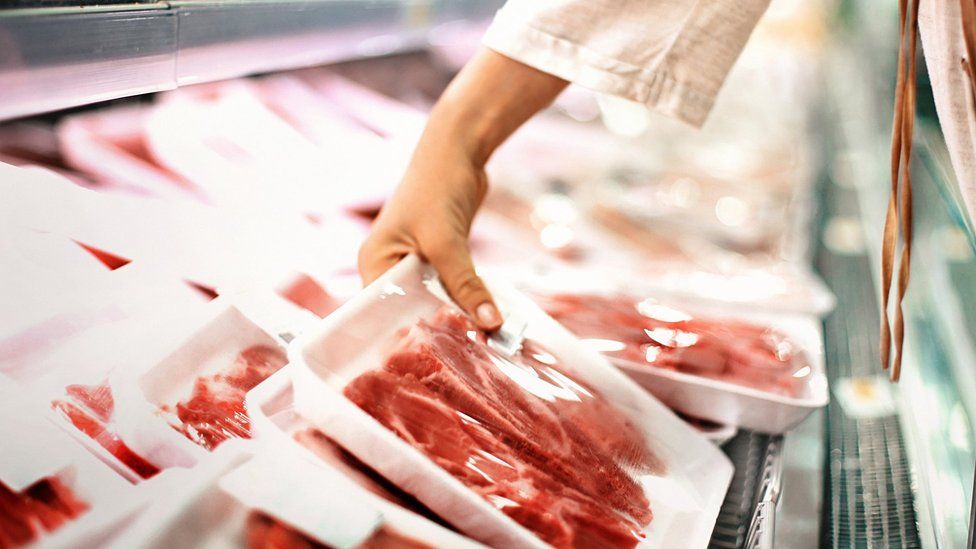ARTICLE AD BOX
 Image source, Getty Images
Image source, Getty Images
By Lora Jones
Business reporter, BBC News
Brexit has added £210 to the average household food bill in the two years to the end of 2021, new research suggests.
Academics at the London School of Economics found that the cost of food imported from Europe went up because of extra red tape and checks.
It said that the changes for items going across the border had pushed food prices up by 6% to £5.84bn overall.
Price rises hit poorest households hardest because they spend more of their pay packets on food, it added.
But it noted one benefit seen since Brexit was reduced competition for food producers in Britain.
The BBC has contacted the Department for International Trade for comment.
Researchers at its Centre for Economic Performance (CEP) looked at data tracking the flow of trade and prices of food products between the UK and the European Union (EU) to work out how shoppers were being affected by the UK's exit.
Their calculations sought to isolate the effects of Brexit and separate them out from other supply chain issues that caused disruption during the pandemic.
It blamed the increase in food prices on a rise in "non-tariff barriers" on trade between the UK and the EU, which include things like new customs checks at the borders, new paperwork requirements and broader measures affecting the movement of animals and plants.
Although the extra checks didn't come into force until 2021, one of its co-authors Nikhil Datta said it was likely firms made "anticipatory" changes around the "hard Brexit" pursued by previous Prime Minister Boris Johnson.
Mr Datta added that these non-tariff barriers should be a "first-order concern" for politicians and policymakers.
Its paper also looked at costs involved with setting up for new systems, such as hiring specialist staff to be able to manage the trade of products that are subject to more checks.
The CEP suggested that between 50% and 88% of price rises seen by these EU exporters and UK importers were being passed on to customers.
Inflation, which tracks how prices rise over time, has hit its highest rate in 40 years.
Richard Davies, a professor at the University of Bristol and co-author of the study, said: "Many factors, affecting both supply and demand for goods and services, are involved. One factor in this high inflation has been the rise in non-tariff barriers for trade with the EU.
"In leaving the EU, the UK swapped a deep trade relationship with few impediments to trade for one where a wide range of checks, forms and steps are required before goods can cross the border," he added.
The report says that immediately after the December 2019 general election, food prices from the EU spiked as businesses reliant on products and ingredients from the bloc started to pass costs on.
The price rises varied according to the type of product, but was generally higher for those products like meat with lots of extra paperwork and checks required, whereas those for vegetables like onions, carrots and broccoli, which might also depend on seasonal availability, was lower.
It said overall that less well-off households had seen bigger price rises as a result, due to the fact they spend a higher proportion of their income.
It suggested that one benefit seen from Brexit was that food producers in the UK now faced less competition from farmers and producers in Europe.
But it added that overall the gain seen was outstripped by the losses seen by shoppers by more than £1bn.

 2 years ago
28
2 years ago
28








 English (US) ·
English (US) ·